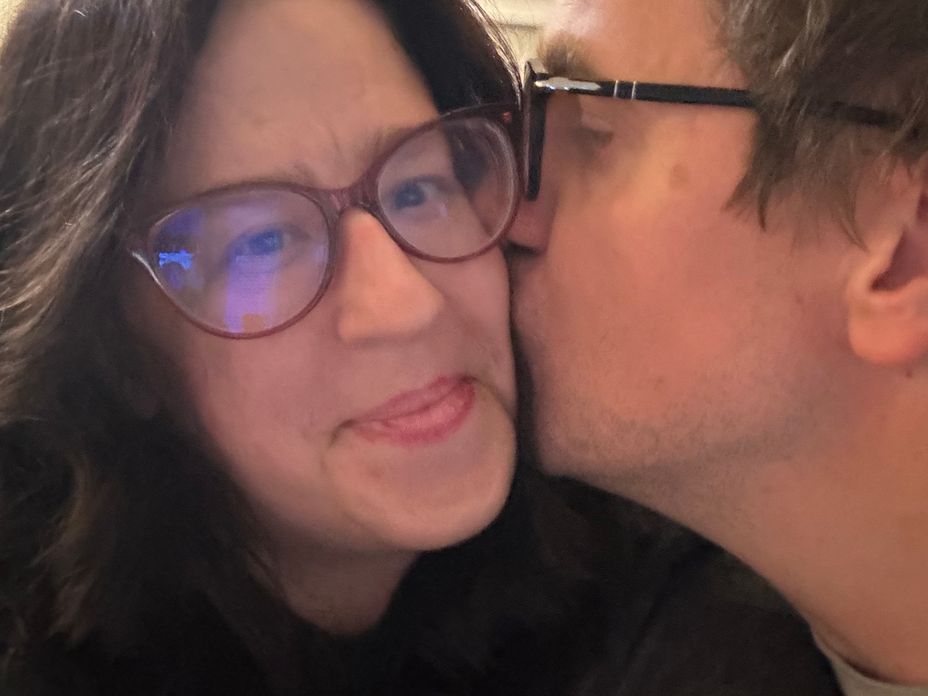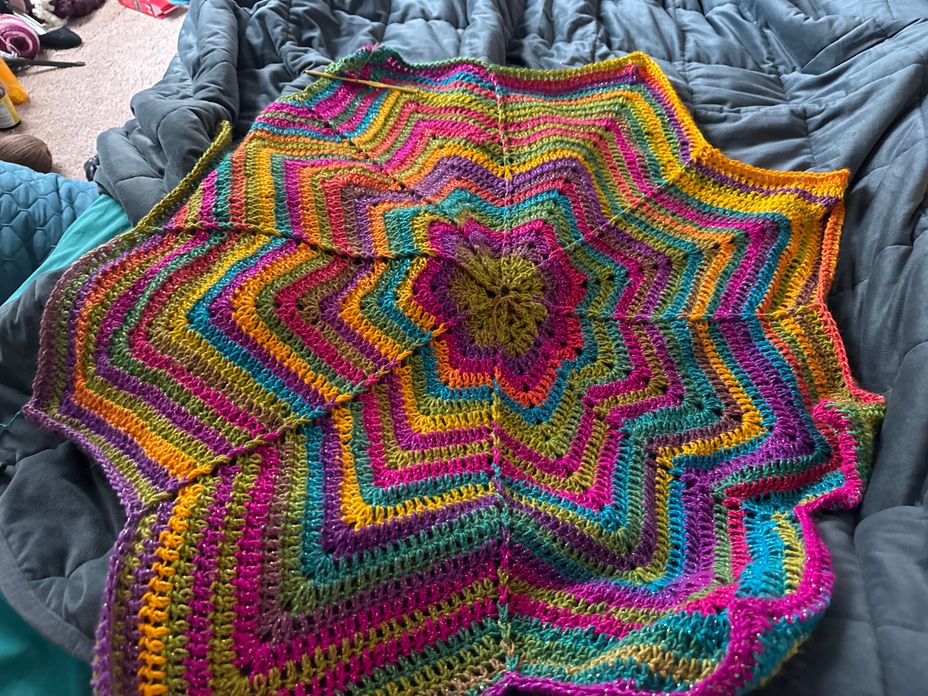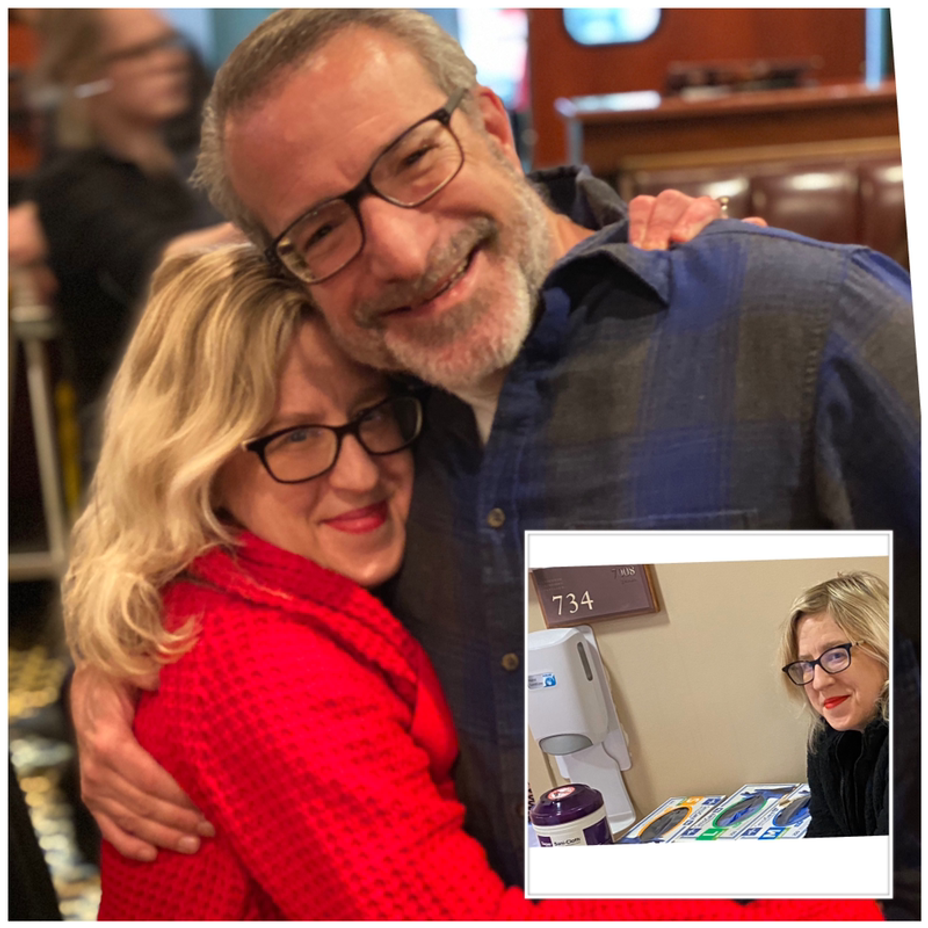When you’re disabled, or chronically ill, the people around you tend to have a lot of…advice in order for you to “get better”. Or, they claim it’s not a big deal because they deal with “fatigue, pain, and bathroom issues too”.
Some people will go as far as looking down on you because of your illness, because you obviously put yourself in this situation, you’re not taking care of yourself good enough, otherwise you would be better by now.
It’s hard to describe being disabled to someone who isn’t. Mainly because there are similar correlations like pain, fatigue, indigestion, etc. For these to become a chronic everyday issue, the abled person has to assume these adjectives have more severe consequences, (basically worse than they have it or can imagine) and that they can be pretty permanent for a person. And that’s a hard pill for people to swallow: Permanent. This is a word we can seldom grasp, because everything in our life changes. The things that don’t, such as death we avoid talking about at all costs.
But let me tell a story that an abled person can understand. My dad has a friend who is vegetarian. He eats lean and clean, all the time; he’s a “health freak”. One of those who goes to the gym as much as he can and has little fat content, but natural muscle mass. He looks way younger than he is because of this. He doesn’t drink, smoke, or do any drugs. He doesn’t do cheat days. And he lets his body heal after an intense workout. One day, he gets a blood clot in his arm and foot. He gets it checked out, but the doctor said he’ll be fine. The next day, his entire arm turns black. He goes to the ER, and his arm has to be amputated. Luckily, they could save his foot. He is now forever disabled, with one arm.
This is a guy who did everything right. He was obsessed with being as healthy as possible, and that’s what he was. He never drank alcohol or soda, never had a cheat day, ate all the vegetables, fruit, nuts, etc. Drank only water, and was always hydrated. Went to the gym consistently, and had little body fat. No exercise injuries for pushing too hard. It was always enough to stay lean and skinny. But despite this, something still went wrong and he became disabled.
It just goes to show: you can do everything right, but that doesn’t mean nothing will happen to you like most people think.
When you have a #ChronicIllness, it doesn’t mean you’re doing something wrong; it means your body is broken. It’s abnormal. And a lot of times, it’s incurable.
In order for something to be curable, there has to be a procedure or medicine that can stop all the symptoms or defects. In order for this to happen, the illness first and foremost has to take priority in research, and have the financial means to do so. But in order for THAT to happen, a large majority of the population has to have the illness. The medical field can’t just spend a ton of money on research and medicines for the 1% who has it. And that’s where most chronic illnesses lie…in that 1%. Do you know the statistics on how many people have #Vacterl? 1 in 40,000.
There are things you can do to manage your illness, but even these managable procedures don’t cure you or put you in remission. Some procedures can make you feel worse but they are necessary to keep you alive or to keep your illness under control.
And some things have to be limited. The world now thinks “exercise is the cure to EVERYTHING!” When in reality, people with defects in their bones and/or muscles can’t do normal exercise routines without making their pain worse and their bones in faster decline. This doesn’t mean they can’t exercise, it means they have to find other, more “softer” exercises such as yoga, walking, or swimming. Normal exercises such as running, competitive sport, jumping, sometimes weights, can ricochet the bones and grind them faster and harder against the cartilage or raw grinding bone to bone leaving less space and a LOT more pain.
Even so, if the illness is correlated with chronic fatigue or #ChronicPain, these exercises can create an entire day of increased chronic pain, and/or chronic fatigue–especially if you try to exercise on a bad day. Not always though; with chronic illnesses we have these strange random symptom rules where an action (say exercise) can make you feel stronger one day, but the next day this same action can make you feel 10x worse. We don’t understand it either….
This leads me to my next point: Our symptoms are not the same as yours. When I say I have stomach cramps or constipation, I don’t mean I ate a little too much. My intestines are paralyzed, meaning they don’t move food all the way through on their own. This causes severe obstructions, and literally screaming pain. The medicine I take for this causes more pain because they basically create seizers in the intestines to get them moving. And because your putting more things in your intestines, something that is made to also expand the feces in a sense, so think of an obstruction, then make it 2x bigger.
When I say my back hurts and I’m tired, I don’t mean I’ve been slouching on my feet all day. My spine is a literal S with deformed butterfly-like vertebrae’s and fused vertebrae’s. I have a severe curve that sticks out my back. I have #Arthritis, and with my bones at an angle there is way less cartilage, so there is a lot of inflammation and way less time than normal people for my bones to literally grind on themselves with every move I make. For people with severe #Scoliosis, yes hello, WE PHYSICALLY HURT. Our bodies have to make up for the deformed spine, which make sacrifices in other ways, such as walking different in order to “correct the balance” which in time can create arthritis in the knees and more pressure on the lower back to hold up the upper back. Our bones are literally grinding on an angle creating inflammation and decreasing our cartlidge more and more. Our muscles have to work twice as hard at all times, in constant “clench” so we are able to even move. This means we are constantly using energy, even when sitting down. This is why we can more easily be fatigued, even if we haven’t done much.
We’re not being overdramatic. Our bodies aren’t normal, so they don’t “do normal things” and therefore we are not on the same level of fatigue or pain. My body is working differently than your body. There’s a reason why it’s called chronic pain, or chronic fatigue, or chronic illness. It’s severe, and it’s ongoing. We’re not just in pain, and we’re not just tired. So before you say it’s not a big deal because you go through it too, ask yourself if your body has severe defects that can’t be cured.
And my final point: Your advice won’t cure us. For some reason, when you have a chronic illness suddenly your friends and family are expert specialists and have all these answers to try. And most of the time…they’re so simple and it’s either already been tried by us, or it’s so stupid it’s laughable. The laughable advice are the people who tell you to take this miracle grass juice, people who tell you to literally think yourself into a “normal person” (visioning yourself cured/as a normal person and your body will magically follow suit) and the people who tell you to go on a “cleanse”. The simple advice people give, is to exercise, do yoga, eat healthy/vegetarian, put ice on it, put heat on it, surgery (which isn’t possible most of the time, or there isn’t a surgery to cure it) etc.
This “advice” if it’s applicable, we have already tried and is probably part of our management if it helps us in the slightest (most of the time it doesn’t do zilch) but it will not cure us or put us in remission. Because if it did, we wouldn’t be having this conversation.
So please, before you judge someone with an illness or injury put yourself in their shoes. Know we are not functioning on the same level, and that sometimes *gasp* some symptoms can be worse than yours. If it hasn’t been cured by a doctor, chances are your advice won’t cure your friend either. And remember, you can do everything right and still have something happen to you. Being disabled can happen to anyone, even you.





